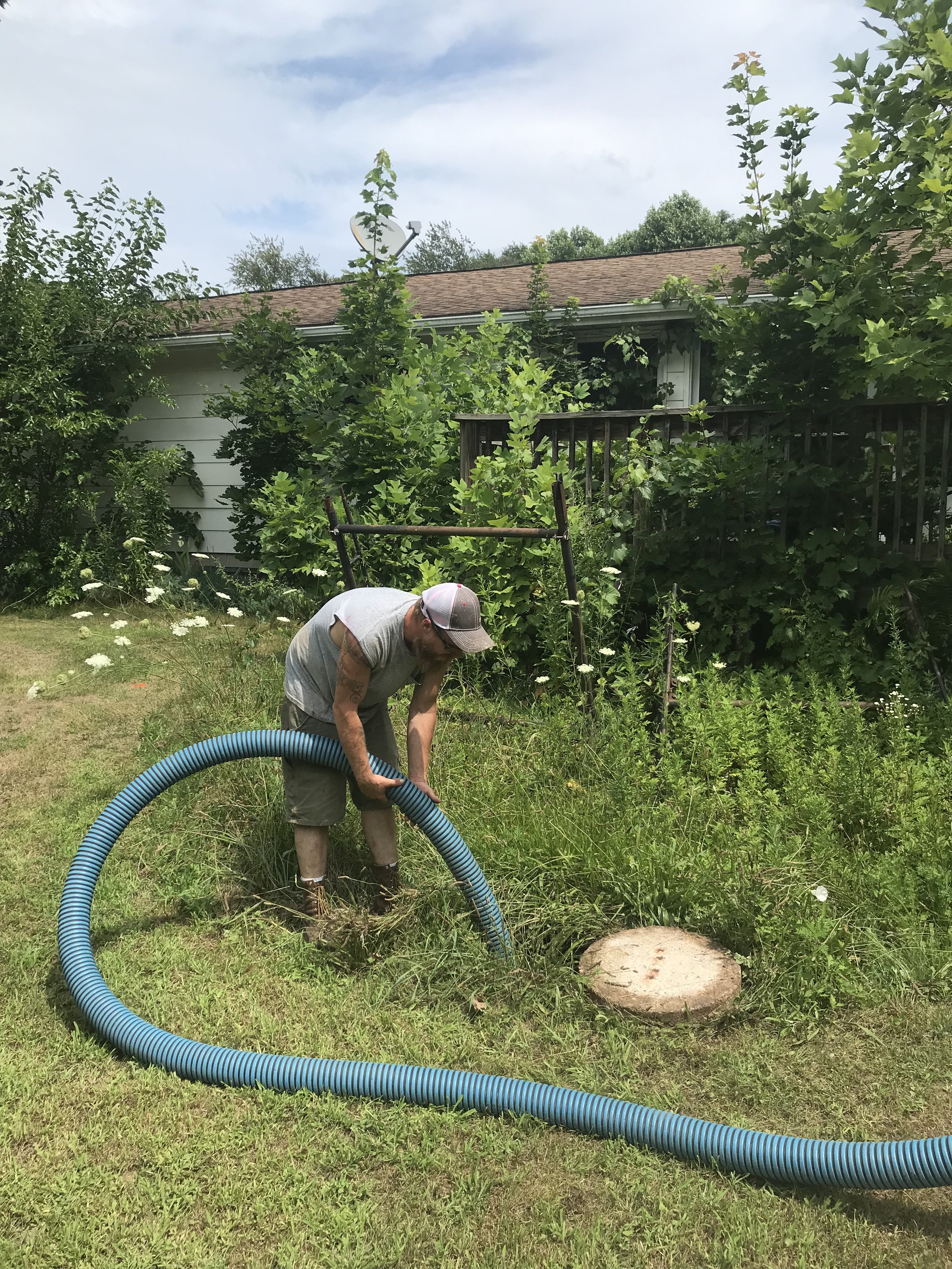Septic Pumping
-

What we do
A septic system receives, treats and disposes of unwanted wastewater and solids from a building's plumbing system. Solids are partially broken down into sludge within a septic tank and are separated from effluent (water) and scum (fat, oil and grease). Effluent regularly exits the tank into a drainfield where it is naturally filtered by bacteria and reentered into the groundwater. Scum and sludge must be pumped periodically and should never enter the drainfield. If they do this could cause damage to your drainfield or backup into your home or business.
Its due to this that our company recommends that you have your septic pumped every two years by an IOWPA certified technician and once you have the septic pumped, we will send you a reminder card in two years time to remind you to call and make an appointment to have it pumped again.
Our trucks carry over 200 feet of hose on the trucks so we do not have to drive on your lawn which could cause damage.
-
Helpful Maintenance Tips
-Only normal ply toilet paper or bath tissue can be flushed down the toilet. Tampons, paper towels and diapers should be put in the trash. We do not recommend flushing “flushable wipes”.
-Household chemicals such as gasoline, paint, medication, antifreeze and pesticides can damage bacteria in the septic system and should NEVER be flushed or dumped down the sink .Laundry detergents and bleach can enter the plumbing system in moderate amounts.
-Cars should NOT be driven on or near the drainfield. All water drainage from rainwater, sump pumps, or any surface water should be diverted away from the drainfield.
-An easy way to prolong a septic system's life and prevent a very costly replacement is to fix leaky faucets and toilets immediately.
-Any unnecessary household water can be avoided by taking shorter showers and not using a garbage disposal.


